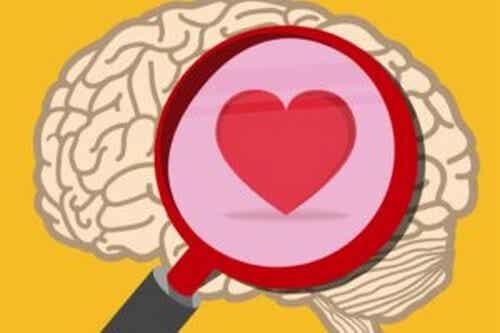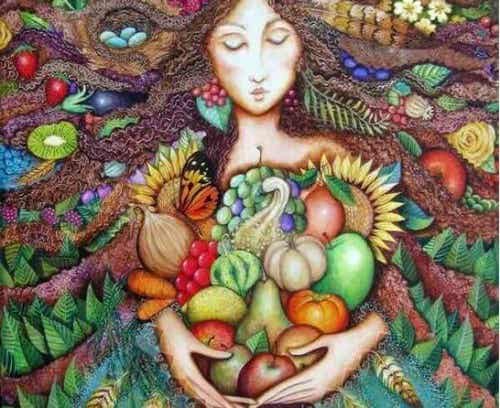Loving animals enriches us, nourishes us and keeps us healthy. However, not all people experience these sensations. Why does this happen? Let's find out in this article.

Last update: Augusts 04, 2021
In recent times, more and more people declare that they have a great love for animals. Probably because today we are more aware that they are living and sentient beings, who deserve respect and have the right to a dignified life.
For these reasons, animals often become real family members. However, not everyone experiences this sensation to the same extent. There are still those who cannot feel this empathy or this emotional closeness towards the inhabitants of the animal kingdom.
Do you think that for many people it is unthinkable to have a pet in the house and even if they would never harm them, they simply do not have this gratifying and positive connection. Why are there these differences and how do they affect us? Let's go deeper into the topic in this article.
Where does love for animals come from?
Characteristics of animals
Human beings have always coexisted in the natural environment with animals belonging to other species, establishing different relationships with them. From hunting to domestication, our interactions with animals have led us to empathize, live with them and take them into consideration to an ever greater extent.
Research conducted by Northeastern University has shown that some people are even able to feel more compassion for animals than for members of their own species. The study showed the 256 participants a (false) report in which a puppy, adult dog, child or adult (as the case may be) was attacked and beaten.
In assessing the level of empathy that the volunteers felt for the victim, the adult human was the least considered. It was the child, puppy, and adult dog (in that order) that aroused the greatest feelings of compassion and distress.
It follows that perceived vulnerability in animals awakens our feelings to greater levels, even compared to those tried for our fellow men.
In the absence of human reasoning, there is no judgment, manipulation or resentment. Thus animals offer us their presence, their love and their company in a pure and genuine way and accept us as we are. This is one of the reasons why so many people love animals.
Personality traits
On the other hand, people who have a love for animals often share a number of qualities. Generally these are individuals with great sensitivity, solidarity and a sense of justice. They are noble and compassionate people.
On the contrary, among those who do not feel any empathy towards animals and even mistreat them there is a higher percentage of psychological and emotional disorders. They are usually selfish, narcissistic and despotic people, with a greater tendency to be violent even with other human beings.
Personal history and previous experiences
We cannot ignore the fact that adopting an animal has a great influence on the perception of the animal world by the various members. Children who grow up in the company of pets and in homes where animals occupy an important place are able to better appreciate their virtues, create a connection and benefit from interacting with them.
On the other hand, fear or dislike for animals can also be acquired by growing up with parents who maintain the same attitude or by having some unpleasant experience with an animal.
How does love for animals affect us?
As the French writer Anatole France said: “Until when you will not have loved an animal, a part of your soul will remain always without light ". The emotional bond we establish with these beings is extremely fulfilling and unlike any other.
Those who live with a pet or are in contact with animals generally enjoy multiple benefits. For example:
- These are more compassionate and selfless people.
- Blood pressure drops, heart rate stays at recommended levels, and stress is significantly reduced.
- They are people who enjoy higher levels of well-being and satisfaction, their mood is better and they experience more positive emotions.
However, the love of animals is not always so rich in benefits. Some people with social difficulties find in them the comfort, acceptance, and companionship that they cannot get from other people. So they will have a tendency to choose to take refuge in animals, rather than trying to overcome their interpersonal limits.
On some occasions, this excessive love can harm the individual on a personal, professional, social or economic level. For example, leading to the acceptance of an excessive number of animals, preventing them from pursuing a profession and depriving them of precious and indispensable resources for leading a healthy life, such as time and money.
Love for animals
We can say that loving animals enriches us, allowing us to forge a unique emotional bond that benefits both mental and physical health. However, if it interferes with our routine, it is important to seek help.
Similarly, those who do not feel this special bond with animals and prefer not to share their life with them, as long as they do not harm them, should also be respected. Indeed, each individual has the right to seek well-being in their own way.


























